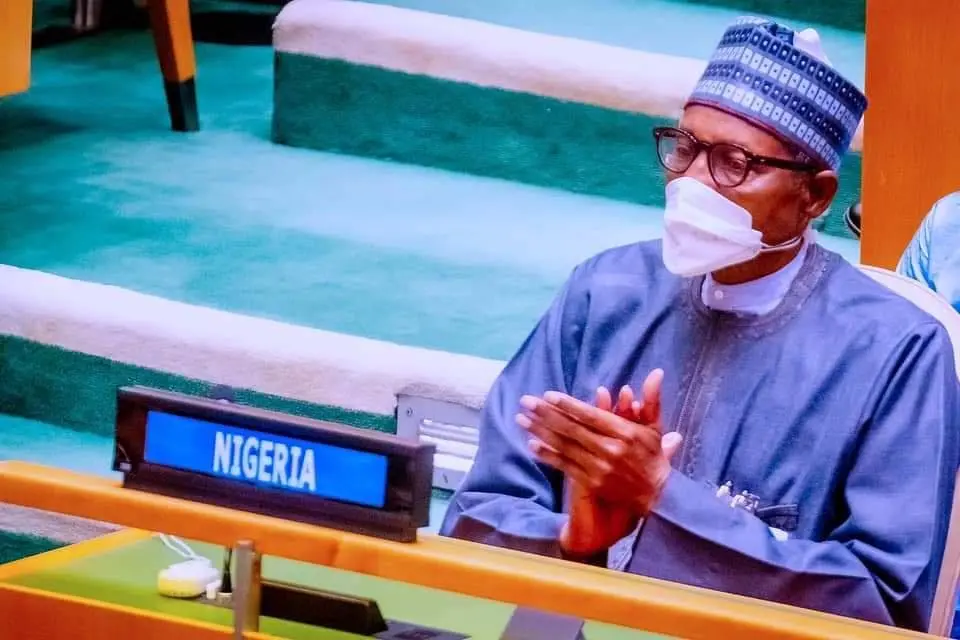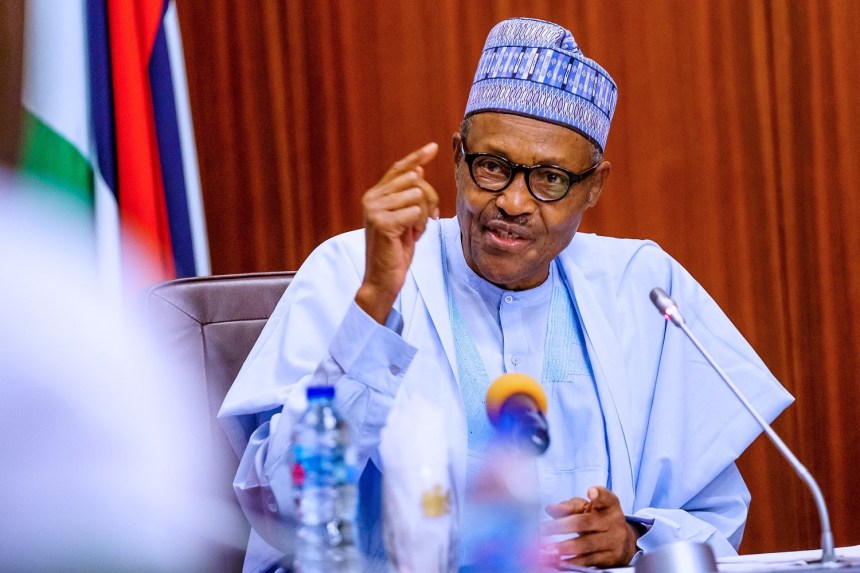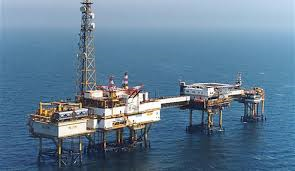Oil
Stakeholders lament non-passage of PIB

ABUJA-STAKEHOLDERS in the oil and gas industry have expressed their disappointment over the inability of the immediate past 7th National Assembly to pass the Petroleum Industry bill, PIB, which had been in the works for more than 12 years now. At the last legislation day, only the House of Representatives passed the PIB, while the Senate refused to pass it, thus nullifying the action of the lower house.
 Speaking on the development, the Executive Secretary, Major Oil Marketers Association of Nigeria, MOMAN, Mr Obafemi Olawore, said he was disappointed that the PIB did not eventually see the light of the day during the administration of Dr. Goodluck Jonathan.
Speaking on the development, the Executive Secretary, Major Oil Marketers Association of Nigeria, MOMAN, Mr Obafemi Olawore, said he was disappointed that the PIB did not eventually see the light of the day during the administration of Dr. Goodluck Jonathan.
“They did not meet my expectation in this regard. I am disappointed! I thought they would pass it, but they did not. What do we do? It means all the reforms that we have been expecting in the oil industry have been postponed.” Olawore explained that the passage of the bill by the House of Representatives was an incomplete exercise, adding that the Senate also needed to pass it before it is harmonised and sent to the President for assent.
“For us, it is a disappointment that the bill was not passed by the two Chambers before the end of the seventh assembly. Instead of the Senate to give the PIB priority, they passed 46 bills in 10 minutes,” he said. According to the Secretary General of Nigeria Union of Petroleum and Natural Gas Workers, NUPENG, Mr. Isaac Abarere, it is a surprise that the House of Reps members could pass the bill on the last day of its official duty.
“We need to know the details before reacting. If the bill was passed with the clauses which harmonise the power of the Minister of Petroleum, then it can be said to be a good thing for stakeholders. It is unfortunate that the House of Representatives had to delay the bill until the end of 48 months before passing the bill,” he added.
Also, the Managing Director/Chief Executive Officer, Sahara Energy, Mr. Kola Adesina, said that the passage of the bill by the House of Representatives cannot be relied upon as the clauses in the bills have not been clearly spelt out. He said that it is too early to celebrate since no one knows which of the clause had been altered, adding that it is impossible to agree that the bill has been passed since the Senate could not pass it.
Also, the Secretary General, the United Niger Delta Energy Development Security Strategy, UNDEDSS, Mr. Tony Uranta, said there was no justification for the 7th Assembly not to have passed the PIB that would have put an end to the recurring crisis in the nation’s oil and gas sector.
“The PIB was introduced to the National Assembly since 2007. It is disheartening that the PIB which sought to establish a legal, fiscal and regulatory framework for the petroleum industry was not given priority passage by the 7th Assembly.” “To sanitise the oil and gas sector and make it equitable and workable, curbing corruption by giving teeth to existing laws in the petroleum industry, the PIB should no longer be delayed,” Uranta said.
He however urged the Senate to remove the clause in the bill, interpreting host communities to mean the entire nation. “There is no way the entire nation will be host community in the oil and gas sector. Every region has its endowments even in the mining sector. Host communities must be interpreted to be those producing the oil and gas in the country,” he said.
He also urged the 8th Assembly to make passage of the PIB one of its first priorities. Also, Mr. Ikem Ohia, a director of Ascon Oil, said that the passage of the bill by only the House of Representatives was nothing to rejoice about, adding that the two chambers needed to have passed it before going through the process of assent to become a law.
For Mr. Dauda Garuba of the Natural Resource Governance Institute, though a lot of hope was placed on the passage of the PIB, Nigeria can no longer continue to move in a circle. According to him, the last minute passage of the Bill by the House of Representatives alone was very disappointing.
He said, “We all know that one of the chambers of the National Assembly will not get the PIB passed into law except both chambers approve of it. That is where the critical issue comes up; as what was the whole effort about by the House of Representatives if eventually the Senate was not going to pass it and was going to be harmonised to become a law?”
Garuba however said that despite the failure of the 7th National Assembly to pass the bill, the new government of President Muhammadu Buhari could still reform the oil and gas sector without the law.
Explaining the effect of the non-passage of the bill on the economy, the Director General of Lagos Chamber of Commerce and Industry, LCCI, Mr. Muda Yusuf, said the development has hampered investments by the members of LCCI that operate in the upstream sector of the oil and gas industry.
According to him, before the oil price decline, Oil Producers Trade Section, OPTS of the LCCI, said that investments in over 50 per cent of their deep water fields were uneconomical due to the delay in the passage of the PIB. “It is clear now that with the current oil price decline, it is really difficult for OPTS members to make fresh investments needed to break even until the uncertainty over PIB is removed,” Yusuf said.
– Vanguard
Oil
NNPC Discovers Over 4,800 Illegal Pipeline Connections

The Nigerian National Petroleum Company (NNPC) Limited has revealed the detection of more than 4,800 unauthorized connections on oil pipelines within the country, painting a troubling image of the nation’s primary source of revenue.
Mele Kyari, the Group Chief Executive Officer of NNPC Ltd, communicated this information to the Senate Committee on Appropriations last Friday.
He said, “We have over 4,800 illegal connections on our pipelines. That means in some lines, within 100 kilometres of pipelines, you have as much as 300 insertions.
“Therefore, even when you produce the oil, you cannot deliver them at the required pressure and therefore the volume will also be less.”
As per the NNPC Ltd chief, individuals from various regions enter the Niger Delta, inserting unauthorized connections on pipelines in Nigeria’s oil-producing area.
This recent revelation follows a prior discovery of 295 illegal connections to the pipelines by the firm a year ago, underscoring the escalating issue of crude oil theft in Nigeria.
Two years earlier, Kyari had highlighted the country’s daily loss of 200,000 barrels of oil, amounting to $13 million due to theft and vandalism.
He further stated “We have two sets of losses, one coming from our products and the other coming from crude oil. In terms of crude losses, it is still going on. On the average, we are losing 200,000 barrels of crude every day.”
After the discovery, Nigeria’s security forces pledged to enhance security around the country’s pipelines.
To bolster this, the Federal Government granted a multi-billion naira pipelines surveillance contract to Tantita Security Services, headed by former militant leader Government Ekpemepulo, also known as Tompolo.
Despite facing criticism for this decision, Senator Heineken Lokpobiri, the Minister of State for Petroleum, remains convinced that it was the appropriate course of action.
In August, following a tour of oil facilities in the Niger Delta, Senator Heineken Lokpobiri expressed gratitude to Tantita, commissioned by NNPC Ltd, for their ongoing work.
He also hinted at plans for further extensive endeavors in the future.
In 2021, after extensive debate and delays, the Petroleum Industry Bill was finally passed to attract increased foreign investment into the oil sector through amendments to regulations, royalties, and taxes.
Oil
Dangote Refinery Set To Begin Fuel Production With First Crude Arrival

Nigeria’s colossal $19 billion Dangote Refinery, after encountering several setbacks, is on the verge of kickstarting fuel production.
This achievement is heralded by the arrival of the first crude shipment, transported by the OTIS tanker carrying 950,000 barrels of Nigeria’s Agbami crude.
S&P Global, citing industry sources and tanker tracking data on spglobal.com, reported the tanker’s departure on December 6, en route to Lekki, the nearest land port to Dangote’s offshore crude receiving terminal.
Scheduled to reach its destination around 8 PM on December 7, the arrival of this shipment signifies the commencement of crude supplies for the refinery’s operations.
Chartered by the state-owned Nigerian National Petroleum Company (NNPC), the Suezmax tanker is an emblem of the initial crude supply to Dangote’s cutting-edge refinery, as disclosed by a West African oil trader familiar with the matter in the S&P report.
Even though the refinery was officially completed in May, the absence of domestic crude feedstock had hindered oil product manufacturing.
To address this, the NNPC, holding a 20% stake in the refinery, struck an agreement to provide 6 million barrels of crude oil as feedstock to the Dangote refinery in December.
This move aims to jumpstart operations and overcome the previous impediments.
Agbami, operated by Chevron, holds a prominent position among Nigeria’s major deepwater developments, producing around 100,000 barrels per day in the central Niger Delta.
Known for its light sweet crude qualities, with a specific gravity of 47.9 API and a low sulfur content of 0.04%, Agbami produces substantial amounts of naphtha and kerosene.
NNPC has chartered additional shipments from different Nigerian offshore fields to the refinery, marking the start of a sequence of planned crude supplies for the month, as mentioned by the oil trader.
Located on the outskirts of Lagos, Nigeria’s commercial hub, the Dangote Refinery encountered repeated delays since its 2013 announcement, despite significant installation progress in 2019.
The refinery, designed to handle multiple crudes simultaneously, targets three Nigerian crude grades—Escravos, Bonny Light, and Forcados. When operating at full capacity, it aims to produce 327,000 barrels per day (b/d) of gasoline, 244,000 b/d of gasoil/diesel, 56,000 b/d of jet fuel/kerosene, and 290,000 metric tons per year of propane/LPG.
Dangote’s operations starting signify Nigeria’s hopes to lessen its reliance on gasoline imports, addressing the deficiencies of its existing refineries undergoing repairs. This shift is poised to reshape Nigeria’s oil industry, potentially leading to gasoline self-sufficiency by the 2040s.
Dangote officials anticipate an initial output of 370,000 barrels per day (b/d), emphasizing jet fuel and diesel production.
Industry analysts, however, project the refinery to reach its full operational capacity by mid-2025, although potential delays remain a looming concern.
Oil
NNPCL Sets Dec 2024 Terminal Date For Fuel Importation

The Nigerian National Petroleum Company Limited (NNPCL) has announced intentions to cease importing refined petroleum products by December 2024, anticipating full operational functionality for all national refineries by that time.
Group CEO, NNPC Ltd, Mele Kyari, shared this at a meeting with Speaker Tajudeen Abbas of the House of Representatives, who advocated for the privatisation of Nigeria’s refineries on Thursday.
Projections indicated the national oil firm’s revenue could climb to N4.5 trillion by the conclusion of 2023. Moreover, the rehabilitation of the Port Harcourt Refining Company, managed by NNPCL, was slated for completion by December of the current year.
Meanwhile, Oil marketers verified on Thursday that the Port Harcourt refinery is set for operations, potentially starting in January 2024. They emphasized that once operational, this refinery could notably reduce the prices of refined petroleum products.
During the meeting in Abuja, Kyari asserted Nigeria’s intention to cease importing refined petroleum products by 2024, envisioning the country’s emergence as a net exporter of these commodities within the same year.
He outlined the plans for launching operations at the Port Harcourt, Warri, and Kaduna refineries.
Kyari reiterated that all refineries would operate at full capacity, ultimately paving the way for Nigeria to transition into a net exporter of petroleum products by the conclusion of 2024.
He attributed the inactivity of Nigeria’s refineries over the years to the petroleum subsidy, emphasizing that the removal of this subsidy was drawing significant private-sector investments into the sector.
Kyari said “I can confirm to you that by the end of December this year, we will start the Port Harcourt refinery; early in the first quarter of 2024, we will start the Warri refinery and by the end of 2024, Kaduna refinery will come into operation.
“This is the commitment we are giving today and you can hold us accountable for this. In 2024, many of the initiatives including the rehabilitation of our refineries and also the efforts of small-scale refineries, and the upcoming Dangote refinery, will make Nigeria a net exporter of petroleum products in 2024.
“We will no longer be talking about fuel importation by the end of 2024. I am very optimistic that this will crystallise.
Kyari promised that by the conclusion of 2023, the government’s anticipated revenue from the company would reach N4.5 trillion, emphasizing NNPCL’s adherence to the Petroleum Industry Act and its commitment to delivering value to shareholders.
Recall that in October 2023, it was reported that Nigeria’s monthly spending on the importation of Premium Motor Spirit, known as petrol, had reached approximately N843 billion due to NNPCL’s cessation of oil swaps.
In July of this year, the Nigerian Midstream and Downstream Petroleum Regulatory Authority reported that during the post-deregulation period, spanning June 1 to June 28, 2023, the country’s total petrol consumption amounted to 1.36 billion litres, with an average daily consumption of 48.43 million litres.
The average ex-depot price of petrol, sourced solely from NNPCL as the importer, stands at about N580 per litre.
However, both NNPCL and oil marketers declared on Thursday that this substantial oil import expenditure would soon diminish.
They anticipated a drop once the Port Harcourt refinery commences production of refined petroleum products from January 2024, barring any unforeseen circumstances.
















